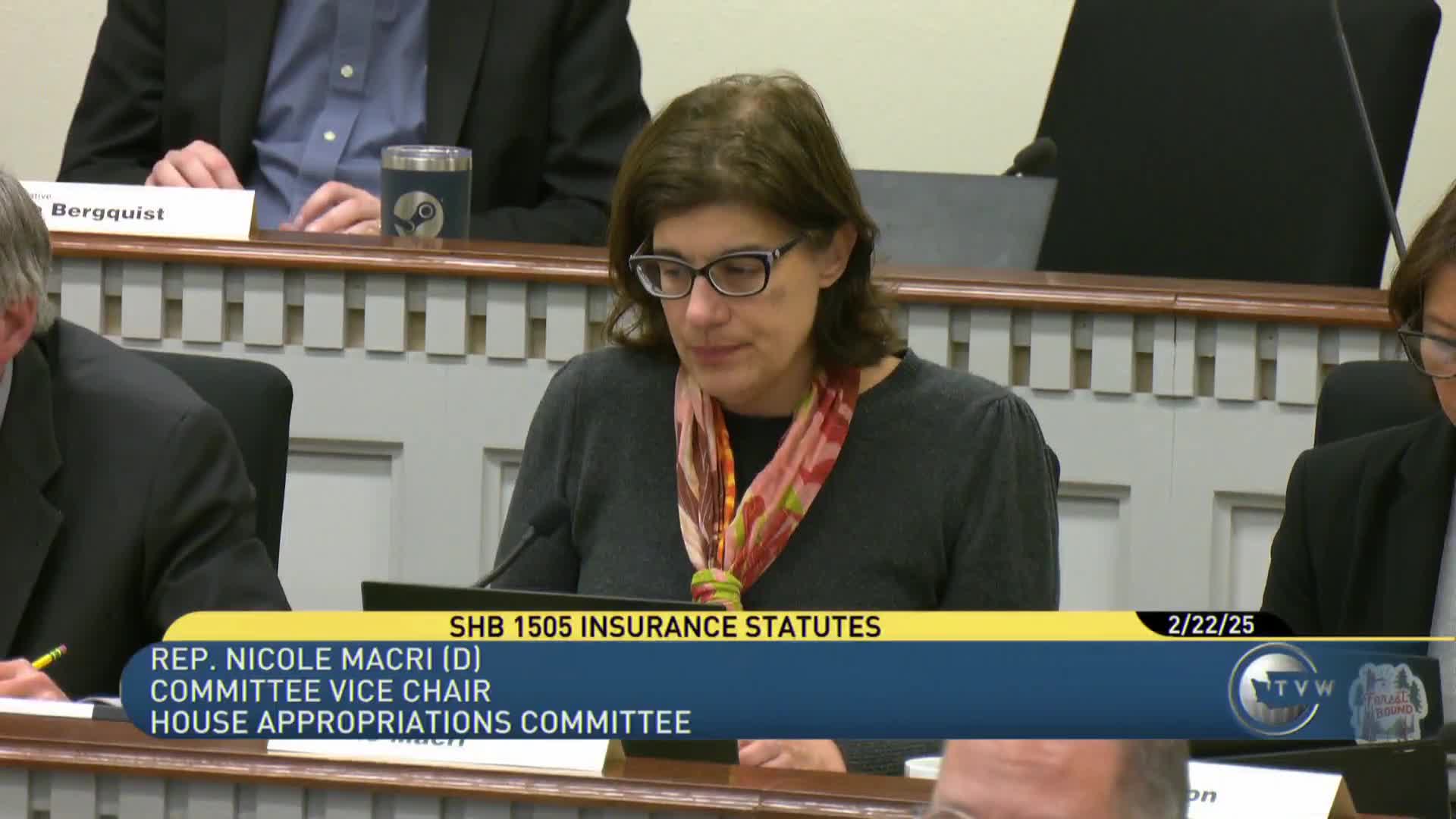Providers warn proposed delay to nursing‑home rate rebase would force closures and reduce access
Get AI-powered insights, summaries, and transcripts
Subscribe
Summary
An amendment to SHB 14 76 would delay and alter the timing and cost base for the Medicaid nursing‑facility rebase; providers testified the freeze would leave payments out of step with rising wages and supplies and could force facility closures and hospital backlogs.
Legislative staff briefed the committee on an amendment to Substitute House Bill 14 76 that changes the cost‑report year used for the next Medicaid nursing‑facility rate rebase. The briefing said the amendment requires use of 2024 cost reports for the delayed rebase (instead of 2025), and corrected a drafting error that would have unintentionally reverted 2026–27 payments to a lower average. Staff said the combined effect lowers the immediate state cost of delaying the rebase but still leaves a net budget impact across the 2025–2029 window.
Staff noted the nursing‑facility rate is composed of direct care (about 67% of the rate), indirect care (about 20%), capital and quality components. In fiscal year 2025 the Medicaid average daily rate reported in staff briefing materials was around $376 per day and roughly 7,800 DSHS clients received care in nursing facilities. Delaying the rebase would hold rates at earlier (2022) cost levels for multiple years under the amendment outlined in briefing.
The public hearing drew dozens of provider, administrator and labor witnesses from across the state. Administrators from facilities in urban and rural counties said the proposed delay would further widen the gap between costs and Medicaid reimbursements. Many cited steep increases in wages, minimum wage effects, staffing shortages and large price increases for supplies. Facility administrators and trade groups (Washington Health Care Association, LeadingAge Washington and several multi‑site administrators) warned that prior rebasing delays resulted in permanent bed closures and long hospital backlogs; several witnesses cited earlier experience in which many nursing homes closed after funding lapses.
Frontline labor and facility clinical leaders testified the delay would mean they could not raise wages to keep pace with local labor markets and could lose staff. Witnesses documented facility staffing and supply cost inflation since 2022 and urged the legislature to fund updated rates rather than hold costs at an earlier base year. Several witnesses said the policy would shift cost and delay needed investments in staffing and infrastructure, especially in rural counties that have only one nursing facility.
Office of Financial Management staff said inclusion of this delay was proposed in the governor’s budget as one of several difficult tradeoffs to balance the operating package. OFM staff confirmed the proposal defers some state spending but acknowledged it risks closures and capacity loss.
No committee action was taken; the hearing record contains detailed testimony from providers, trade associations, labor and local elected officials.
